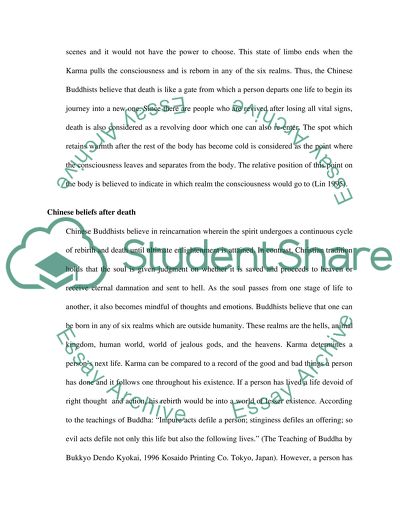Cite this document
(“Beliefs About Death and Dying: The Chinese Buddhist Perspective Essay”, n.d.)
Beliefs About Death and Dying: The Chinese Buddhist Perspective Essay. Retrieved from https://studentshare.org/miscellaneous/1502081-beliefs-about-death-and-dying-the-chinese-buddhist-perspective
Beliefs About Death and Dying: The Chinese Buddhist Perspective Essay. Retrieved from https://studentshare.org/miscellaneous/1502081-beliefs-about-death-and-dying-the-chinese-buddhist-perspective
(Beliefs About Death and Dying: The Chinese Buddhist Perspective Essay)
Beliefs About Death and Dying: The Chinese Buddhist Perspective Essay. https://studentshare.org/miscellaneous/1502081-beliefs-about-death-and-dying-the-chinese-buddhist-perspective.
Beliefs About Death and Dying: The Chinese Buddhist Perspective Essay. https://studentshare.org/miscellaneous/1502081-beliefs-about-death-and-dying-the-chinese-buddhist-perspective.
“Beliefs About Death and Dying: The Chinese Buddhist Perspective Essay”, n.d. https://studentshare.org/miscellaneous/1502081-beliefs-about-death-and-dying-the-chinese-buddhist-perspective.


